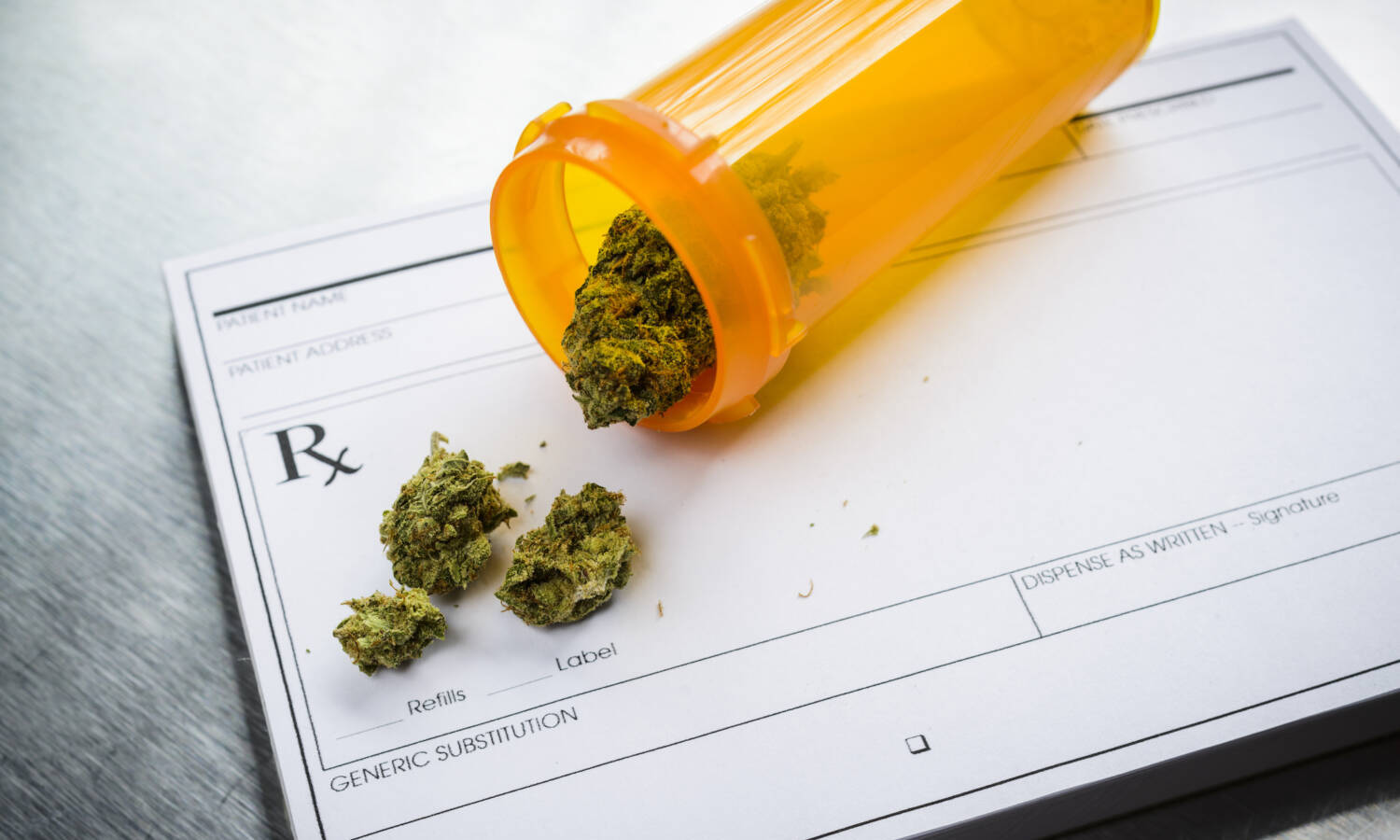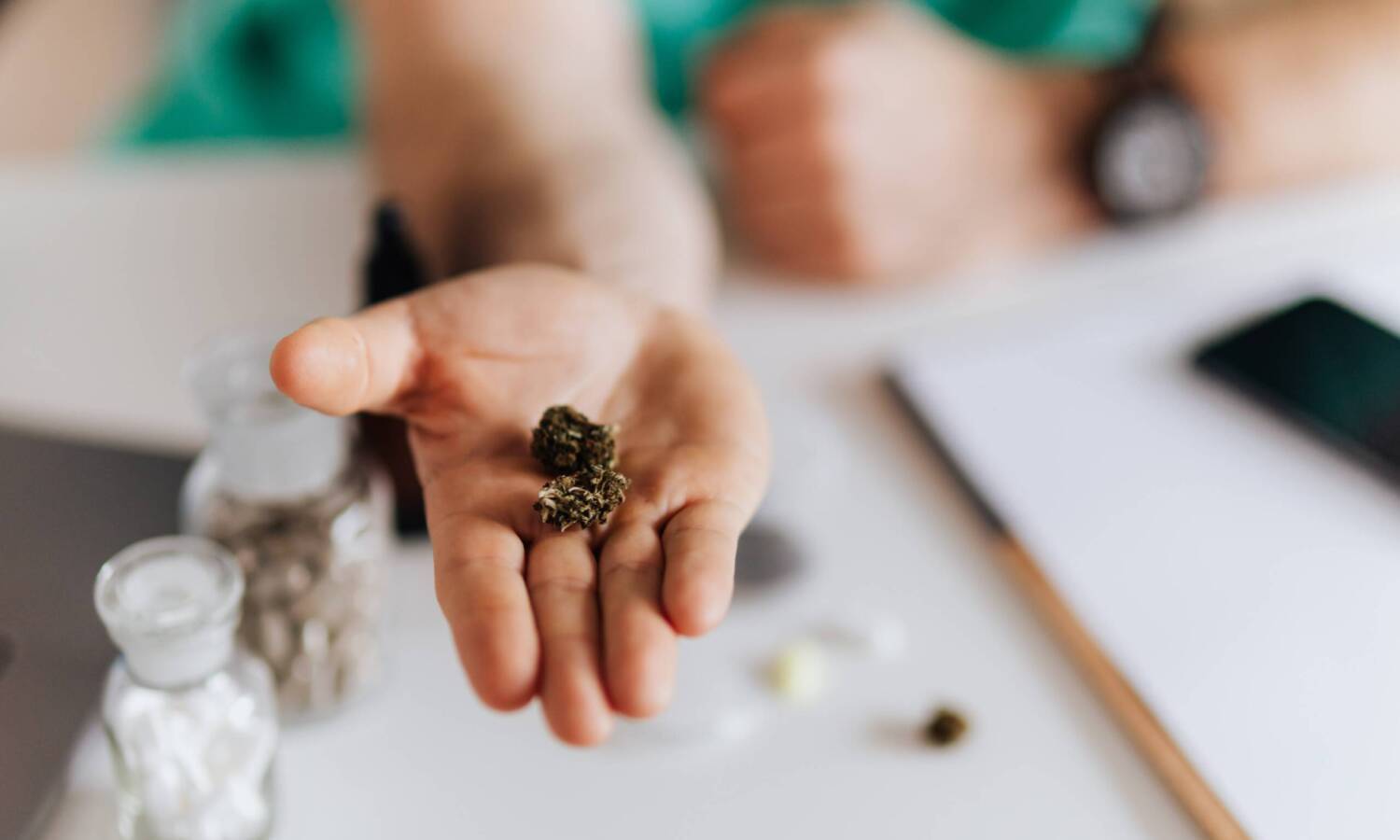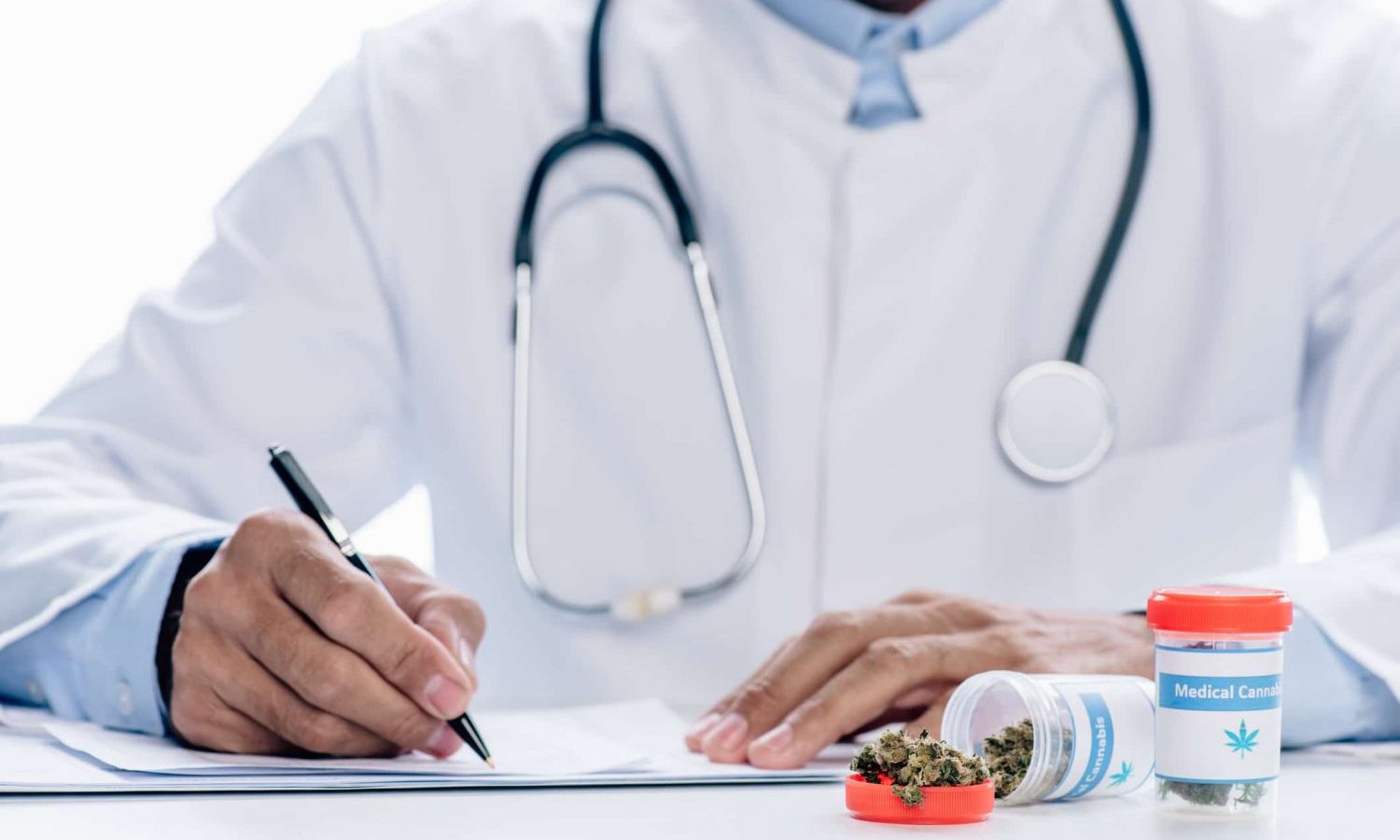Keep in mind that today’s doctors were not taught about how cannabis works in the human body. Even if they have attended programs or workshops, it will take time for them to get up to speed regarding dosing, strains, and products.
This article originally appeared on Cannabis.net and has been reposted with permission.
Even if recreational cannabis is legal in your state, there are certain benefits to getting a medical marijuana card for those who are using it to treat a certain condition or ailment.
Depending on the state, the benefits of an MMJ card vary but they can include cheaper prices, being able to buy more cannabis at a time, legitimately being able to purchase cannabis products of higher potency, growing your own cannabis legally, and much more. Additionally, the rules surrounding getting your own medical marijuana card will also vary depending on state laws which is why it’s critical to research the procedures involved with getting one.

RELATED: Which States Have Medical Marijuana In 2022?
In essence, medical marijuana cards are state-issued identifications that enable patients to buy cannabis products from licensed dispensaries specifically for treating certain ailments or health problems. Patients need a recommendation from certified physicians that they are diagnosed with a condition that the state is qualified for patients to access MMJ for.
Having said that, many patients wonder if they still need to consult with their doctors regularly after obtaining an MMJ card especially if you have a minor condition. For example, you have applied for an MMJ card through your physician’s recommendation that you have glaucoma; the cannabis works well for you and you don’t feel like you need to go back for checkups. In the same light, you may also be taking cannabis for treating your anxiety, but when it works, you may feel like there’s no need to divulge this information to your doctor the next time you see one for another reason, or follow through with your physician with regards to how you’re doing.
However, it’s critical that patients still visit their doctor regularly even after they have gotten their MMJ card. Here are some reasons why:

Transparency: In certain states, legally speaking, doctors can’t prescribe the use of cannabis. Whether this is true or not where you live, your provider needs to be informed that you are using cannabis as treatment for your condition. Medical providers should always be informed and comfortable so that they can ensure there are no critical interactions between other medications that you may need now or later on.
The same is true for recreational users, which is why full disclosure of cannabis use is always important for doctors.
Some cannabis products may not be right for you: So you’ve already gotten a medical marijuana card for anxiety, now it’s time to find medicine that works for you. It is well known through anecdotal evidence as well as studies that high-THC cannabis products may not be suitable for individuals with panic attacks and anxiety, so CBD products are better instead. You can get this information from a knowledgeable budtender in a licensed dispensary in your area, but if you have severe anxiety and panic attacks, this condition is something you’re going to want to monitor regularly with the help of a physician.
RELATED: Grading Every State’s Medical Marijuana Program — How Well Did Your State Do?
Budtenders are skilled, but they are not doctors, not by a long stretch. In many cases you may want to monitor your progress under the supervision of a doctor.
Combining medical marijuana with conventional therapy: There are many cases wherein ailments can be treated more effectively when conventional therapy and medical marijuana are used in conjunction. Those who know best will always be the medical professionals; this is critical in the case of potentially serious or terminal illnesses such as cancer where many patients have been successfully treated using chemotherapy together with medical cannabis but under medical supervision.
Working around the many types of cannabis products as well as the right dosage: There are so many different types of cannabis products out there in various forms and dosages. One may certainly work better for you than others, and your doctor can help you identify when it’s time to shift your treatment plan to another.
For example, if you suffer from chronic body pains and have been vaping cannabis for it, you may find that the effects don’t last for a very long time. If you consult with your doctor, they may be able to recommend cannabis edibles instead, or a stronger concentrate that you can take before bed to help you get some shut-eye.
What If You Get Objections From Your Doctor?
If you are only looking for a doctor to consult with after you have gotten your MMJ card, or have to switch doctors for any reason, be prepared to experience objections from doctors.
Not all doctors out there are supportive of cannabis use, nor are they knowledgeable about it. Some may be supportive initially but not know enough about it to discuss further, and they may recommend you to another colleague of theirs who does. While it’s wise not to assume that your doctor is well-versed in cannabis as medicine, you can find out by asking them if they have attended any recent education programs focusing on cannabis. If they answer no, then you can move on to another doctor.
Keep in mind that today’s doctors were not taught about how cannabis works in the human body. Even if they have attended programs or workshops, it will take time for them to get up to speed regarding dosing, strains, and products that their patients need. This is also why it’s important for you to do your own research as a patient.
Conclusion
Regular consultation with your doctor, even if you have your MMJ card, is essential for supervision and monitoring. When it comes to minor conditions that you can easily treat with cannabis, it’s fine to consult with a budtender. If you aren’t sure or the condition has a chance of worsening, be sure to consult with your physician regularly.
This article originally appeared on Cannabis.net and has been reposted with permission.


